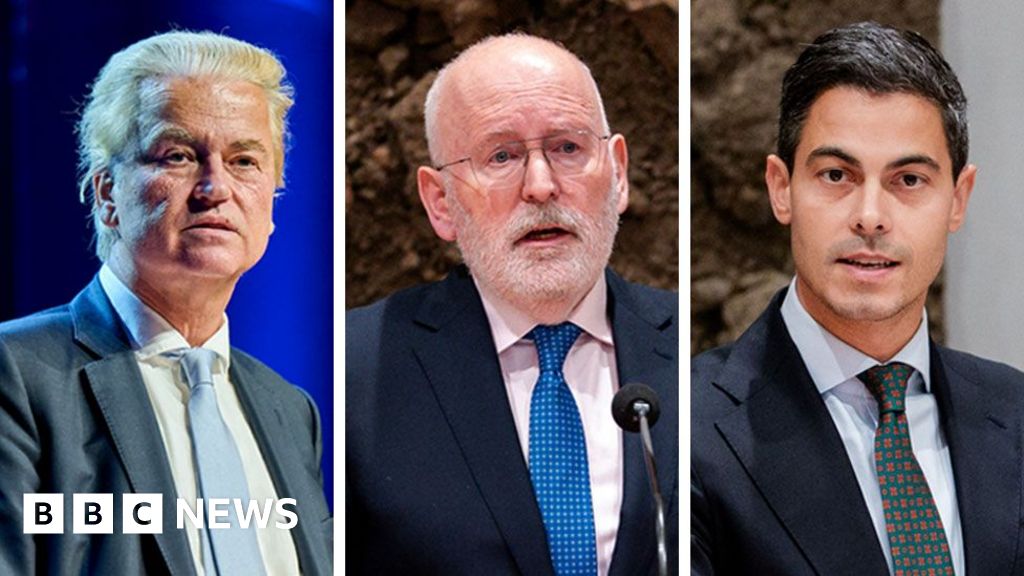The Netherlands is holding its general election on Wednesday, and the race is tighter than ever. Geert Wilders, the anti-Islam populist leader, saw a significant lead in the polls during the previous election in November 2023. However, this time around, his hopes for power are dwindling. Several critical issues are at stake including housing shortages, rising living costs, and immigration policies.
Unlike the previous election, rivals are hesitant to collaborate with Wilders after his coalition government collapsed in June. The outcome hinges on various factors with housing shortages, asylum policies and cost of living taking center stage. Here’s a breakdown of the key issues and leading candidates vying for leadership in the Netherlands.
Tight Race and Shifting Political Landscape
Geert Wilders’ anti-Islam Freedom party (PVV) is facing a difficult battle in Wednesday’s Dutch election, even if he secures the most votes. The latest opinion polls indicate a decline in his support compared to the clear victory in November 2023.
The political dynamics have shifted as Wilders’ rivals are now reluctant to collaborate with him, especially after he caused his coalition government to collapse last June due to disagreements over immigration policies. As voting continues across the country, commentators suggest that the second-place finisher could be more consequential in determining the next government’s formation.
Crises Facing Dutch Voters
Dutch voters are currently grappling with multiple crises that impact their daily lives. A chronic housing shortage has left many citizens struggling to find affordable homes. Overcrowded asylum centers further strain resources and create social tensions. The rising cost of living, driven by sky-high rents and healthcare expenses, adds to the financial burden on households.
These pressing issues have become central themes in the election campaigns, as parties vie to offer viable solutions and address the concerns of Dutch voters. Housing is one of the biggest concerns for dutch voters.
The Undecided Vote
The election outcome remains uncertain, with a significant portion of Dutch voters still undecided on the eve of the election. Sarah de Lange, a professor of Dutch politics at Leiden University, emphasizes the importance of this election in restoring faith among the populace.
With as many as 15 parties expected to secure parliamentary seats, opinion polls highlight four prominent contenders. Besides Wilders’ PVV, other key players include GreenLeft-Labour led by former EU official Frans Timmermans, Rob Jetten’s liberal D66, and the centre-right Christian Democrats of Henri Bontenbal.
Housing Crisis Takes Center Stage
For nearly half of Dutch voters, the housing crisis stands out as the top priority. The nation faces a shortage of almost 400,000 homes, impacting a substantial portion of its 18 million residents. Wilders attributes the crisis to migration, while others point to factors such as the rise in single-person households and planning gridlock.
Most parties have pledged to address the housing issue directly. Frans Timmermans aims to construct at least 100,000 new homes annually if his party assumes power. Rob Jetten suggests utilizing 1% of agricultural land for building purposes. Unemployment levels remain relatively low in comparison to other European countries.
Wilders’ Role in Dutch Politics
Despite being long considered an outsider in Dutch politics, Geert Wilders has played a pivotal role in recent governments. He contributed to both the formation and collapse of the previous government within just 11 months due to disagreements over immigration policies. His former coalition partners prevented him from becoming prime minister, leading to a failed attempt to establish a technocrat cabinet led by former spy chief Dick Schoof.
Dilan Yesilgöz, leader of the conservative-liberal VVD, criticized Wilders, stating that his “party exists as one man with a Twitter account and nothing more.” Moreover, Wilders had to apologize to Frans Timmermans after two Freedom party MPs shared AI-generated images depicting the left-wing leader in handcuffs.
Voters, Radicalism and Anti-Islam Policies
When Wilders secured victory two years prior, he successfully garnered votes from both radical voters concerned about Islam and Euroscepticism and less radical voters. However, he later downplayed many of his anti-Islam policies to appear more appealing. Although Wilders no longer advocates for banning mosques and the Koran, he continues to view Islam as “the greatest existential threat to our freedom”.
This perspective forms a fundamental aspect of his nativism, characterized by an exclusionary form of nationalism. Left-wing leader Timmermans has accused Wilders of unfairly targeting an entire segment of society by blaming Islam. However, Wilders risks losing both radical and moderate voters, who may shift their support to other parties such as the anti-immigration Ja21.
Coalition Formation and Potential Leaders
Forming a coalition government can take weeks or even months. If the centre-right gains power, Christian Democrat Henri Bontenbal could be a potential candidate for leadership. His CDA party has experienced a significant resurgence, considering they secured only five seats two years ago.
Bontenbal believes Dutch voters now desire a return to “boring politics,” suggesting that the Netherlands has grown weary of populism. However, his campaign faced challenges when he initially defended the right of religious schools to teach that homosexual relationships were wrong, only to later retract his statement.
Key Takeaways and Final Thoughts
With the Dutch election approaching, the political landscape remains uncertain. Geert Wilders’ anti-Islam Freedom party faces a tough race amid shifting alliances and pressing issues such as housing shortages and cost of living.
As voters head to the polls, the outcome hinges on factors such as undecided voters, coalition possibilities, and the ability of parties to address key concerns effectively. The election’s results will likely shape the future direction of Dutch politics and society.

Leave a Reply